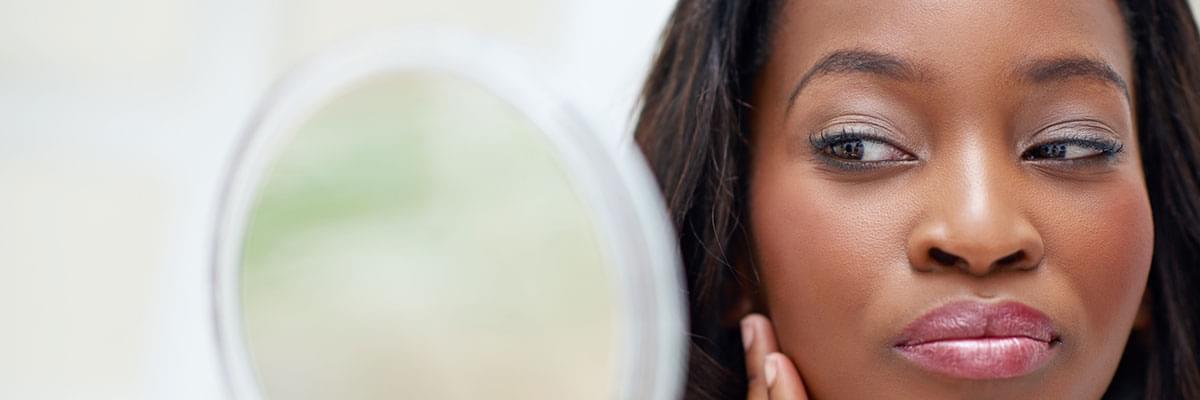
What can we do for you?
Looking good isn't just about vanity or style, it's deeply tied to how we feel about ourselves. Appearance plays a powerful role in shaping our confidence, behaviour, and mental health. Whether it’s getting a haircut, wearing flattering clothes, or having clearer skin, feeling good about the way we look can lead to measurable improvements in our emotional well-being.Modern psychology increasingly supports the idea that appearance affects the way we interact with the world. When we believe we look good, we tend to stand taller, speak more clearly, and feel more capable. This isn’t superficial – it’s human nature.
The connection between appearance and self-esteem
Self-esteem is our overall sense of self-worth. It reflects how much we value ourselves and our abilities. Appearance is one of the factors that contributes to it, especially in a society where looks are often associated with success, health, and youth.
While self-worth should not be based solely on how we look, the reality is that when people feel comfortable in their appearance, their confidence grows. This can lead to better social interactions, more assertiveness at work, and an increased willingness to try new things.
People who invest time in their appearance often report higher levels of self-respect. It’s not the act of dressing up that matters, it’s the sense of control and care that doing so represents.
Looking good can boost mood and reduce anxiety
There is a strong emotional response tied to grooming and personal care. Simple acts like putting on makeup, styling hair, or wearing a favourite outfit can lift a person's mood almost instantly. This is often called "enclothed cognition" – a psychological phenomenon where clothing and appearance influence the wearer’s mental state.
In times of stress or low energy, looking good can act as a form of self-care. It reminds us that we’re worth looking after, even on difficult days. This can be especially important for people struggling with anxiety or depression, where personal appearance may be one of the first things neglected.
By making small but visible changes, like skincare routines or choosing colours that suit us, we reinforce positive self-perception. This can create a feedback loop – looking better helps us feel better, which encourages more positive action.
The influence of social perception
Humans are social beings, and how others see us does matter. While the goal shouldn’t be to please everyone, there’s no denying that looking good can affect how we are treated. Studies have shown that people perceived as attractive are often judged as more intelligent, competent, and trustworthy – rightly or wrongly.
This has real-world implications. Whether it's a job interview, a first date, or a presentation, the confidence we project often stems from how we feel in our own skin. When we look polished or well put together, we are often more respected and taken seriously.
However, it’s important to balance this with authenticity. The most lasting impact comes from looking like the best version of yourself, not trying to fit into unrealistic ideals. True confidence comes when appearance aligns with personal identity.
Appearance and identity expression
For many, appearance is a tool of self-expression. It’s not just about trends or beauty standards, but about showing the world who we are. From bold lipstick to tattoos or hair colour, the way we present ourselves is a reflection of inner beliefs, culture, and creativity.
When people feel that their outer appearance matches their inner identity, there’s often a sense of harmony. This alignment supports mental clarity and emotional balance. It helps people feel more grounded and at peace with themselves.
Feeling disconnected from one’s appearance, on the other hand, can lead to stress or frustration. This can be the case during illness, ageing, or body image struggles. That’s why even small efforts to look good can help restore a sense of self and stability.
Looking good during tough times
During difficult periods in life – breakups, job loss, grief – appearance is often overlooked. Yet these are the moments when small acts of self-care can have the greatest impact.
Washing your hair, putting on a clean outfit, or applying a bit of fragrance can help shift your mindset. It signals resilience and self-worth, even in the face of hardship.
For some, aesthetic treatments, whether skincare or professional services, offer a sense of control and progress. When everything else feels out of control, improving one’s appearance can be empowering.
Beauty and mental health boundaries
While looking good has real psychological benefits, it's crucial not to confuse it with perfectionism or obsessiveness. Chasing an unrealistic ideal or comparing oneself constantly can lead to poor mental health outcomes, including anxiety, depression, or body dysmorphia.
The key is to pursue appearance goals that feel natural, enjoyable, and aligned with self-care – not punishment or pressure. Healthy self-image comes from self-compassion, not constant criticism.
It’s also important to recognise that not every day will be a good appearance day. Learning to feel good despite occasional breakouts, bad hair, or tired eyes is part of building inner strength.
Conclusion
Looking good goes far beyond physical appearance. It’s a form of emotional support, a confidence booster, and often a personal motivator. When we invest in ourselves – through grooming, skincare, clothing, or other aesthetic choices – we are often sending ourselves a message that we matter.
The psychological impact of looking good should not be underestimated. It has the power to influence mood, self-esteem, behaviour, and relationships. While true self-worth comes from many sources, the link between appearance and emotional health is real and powerful.
Ultimately, looking good is not about impressing others – it’s about expressing who you are and supporting your mental well-being through thoughtful, caring choices. When you feel good about how you look, you’re more likely to feel good about who you are.
Back to Articles






















